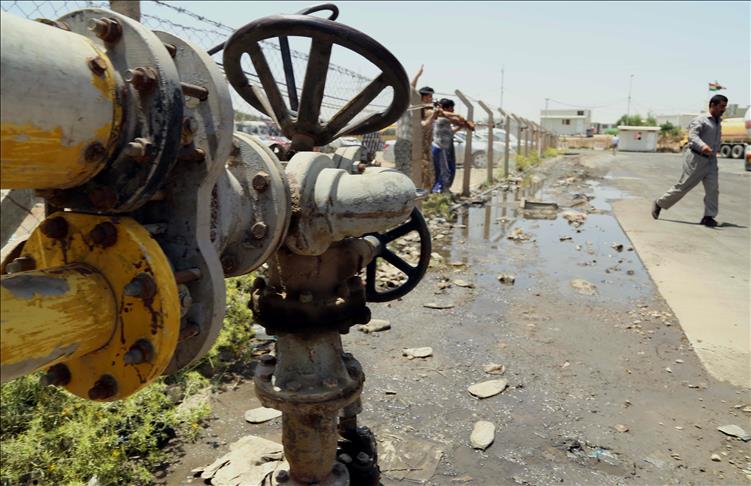
By E. Gurkan Abay
ANKARA
Turkey is considered as the most reliable route for Israel to export its natural gas by many economists, however the recent Israeli military operation in Gaza has created a further backsliding in Turkish-Israeli rapprochement.
With Israel now locked into more violence with the Palestinians and subject to wider problems given such regional conflicts like the Syrian civil war and Iraq’s latest upsurge in violence, Tel Aviv is now looking for a stable partner for energy exports.
The recently discovered Leviathan gas field off the coast of Israel is a major find in a region which holds nearly 620 billion cubic meters of gas.
However, compensation talks with Israel for the families of the Turkish victims of the Israeli raid on a Gaza aid flotilla in 2010 were contiuning but the recent Gaza operation has now increased obstacles to improving Turkish - Israeli relations.
David Koranyi, acting director of Dinu Patriciu Eurasia Center – part of the U.S. Atlantic Council think tank – told Anadolu Agency that all of Israel’s options to export its natural gas to international markets suffer from one or more major flaws, either politically or commercially.
“It is important to understand that nothing has been decided yet,” Koranyi said, adding that, “The only thing that seems fairly certain is export of somewhat larger quantities of gas to Jordan, which desperately needs to reduce its prohibitive energy bill.”
Noble and Delek, the two energy companies with operating rights in Leviathan, said in late June that they signed a preliminary agreement with British oil and gas company BG to export 7 billion cubic meters of gas to BG’s facility in Egypt for 15 years.
Commenting on the deal, Koranyi said although the agreement between Israel and BG made a lot of commercial sense – it was “tentative”.
Underlining that such a deal is fraught by political challenges, Koranyi said any new arrangement on purchasing Israeli gas would encounter domestic opposition and also face security challenges in the Sinai region if the existing Port Said – El Arish pipeline is used.
Koranyi said a pipeline to Turkey via the Cypriot exclusive economic zone (EEZ) or Cyprus itself is another option for Israel; however, this is unlikely without resolving the Cyprus dispute first.
The Cyprus peace talks, which stalled in January 2012, resumed in February with the distribution of the Aphrodite gas field being among the negotiations' most important topics.
“Thus, the Turkish option seems quite difficult these days, unless the parties somehow manage to reach an agreement in a triangle format (Israeli, Greek and Turkish Cypriot and Turkish)”, Koranyi said.
“A daunting task indeed.”
Israel’s options for export
Anastasios Giamouridis, a senior energy consultant at Pöyry Consulting, said developing a liquefied natural gas, LNG, facility in Israel was difficult because of land constraints.
“Other LNG options are to take the gas to Egypt and liquefy it in Egypt, or to take it to Cyprus and liquefy it in Cyprus. The final option is in Israeli offshores, a floating LNG unit,” Giamouridis said.
Underlining that the Turkish energy market was much more substantial then the regional markets, Giamouridis added that: “An offshore pipeline from Israel to Turkey would have minimum amount of risks, as there will be nobody threatening to blow up the pipelines like the one in Egypt.”
The Sinai pipelines – which had previously been used by Egypt to export natural gas to Israel – faced more than a dozen bomb attacks since the removal of long-serving president Hosni Mubarak in 2011.
Emphasizing that if private companies were to buy the Israeli gas rather than Turkey's Petroleum Pipeline Cooperation at a price similar or lower to regulated gas prices in the domestic Turkish market, Giamouridis said the margins for the seller could be "problematic".
Anadolu Agency website contains only a portion of the news stories offered to subscribers in the AA News Broadcasting System (HAS), and in summarized form. Please contact us for subscription options.

